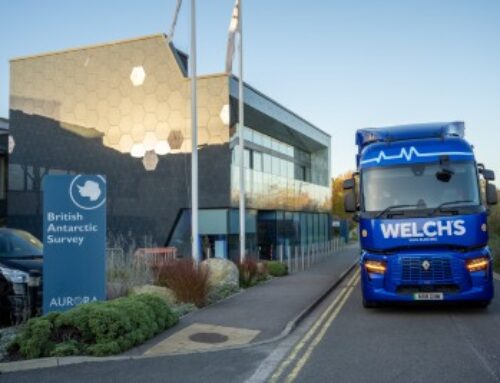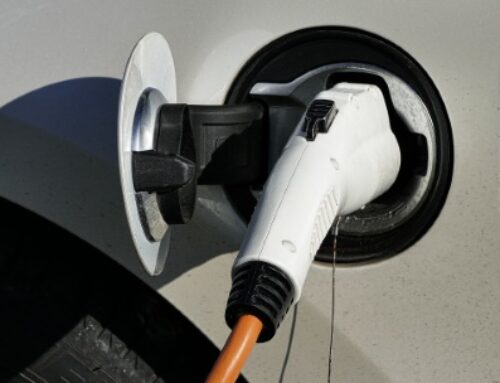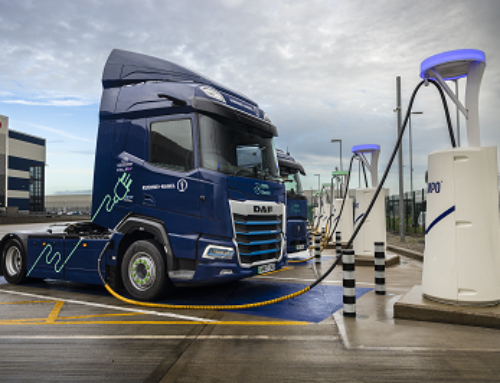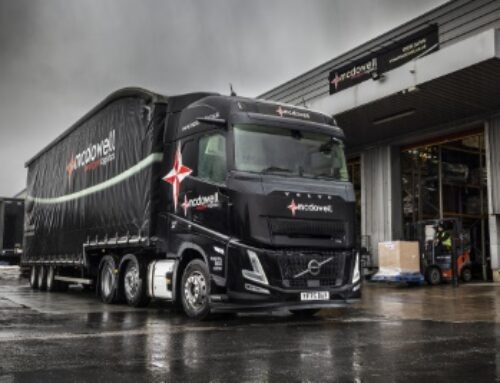Report: electric trucks can achieve lower total cost of ownership
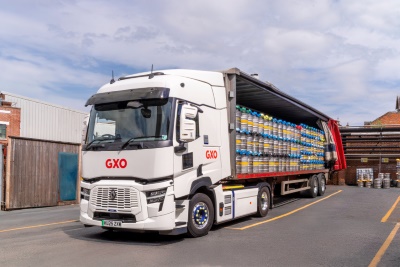
Recent vehicle deliveries for the project include this electric Renault truck, in service with GXO for brewer Shepherd Neame
The third report on a major electric HGV project, Electric Freightway, has been released, which suggests that lower total cost of ownership is possible for electric trucks under certain conditions, compared to equivalent diesel vehicles.
Electric Freightway, which aims to pave the way for wider adoption of electric trucks to replace diesel fleets, is led by Gridserve, the electric vehicle charging specialist. It is one of four programmes that form part of the Department for Transport and Innovate UK’s Zero Emission HGV and Infrastructure Demonstrator (ZEHID) scheme.
While the first and second reports focused on the project’s objectives and planning stages, the third provides an update on the rollout of the electric trucks and charging infrastructure.
Hitachi ZeroCarbon, the principal partner for the Electric Freightway project, has released the latest set of results in the report. Over half a million zero-emission miles have now been traversed by participating vehicles, and 79 electric trucks have been delivered to fleets, with another 78 on order – in excess of the original 140-vehicle target.
According to the report, data-driven calculations suggest that electric HGVs can achieve lower total cost of ownership compared to equivalent diesels if certain conditions are met.
In addition, the report highlights the completion of the first high-speed depot charging facilities, including a 10-bay shared facility at Nissan’s Sunderland factory, which is said to be one of the UK’s largest dedicated charging hubs. Construction is also underway on several public electric truck charging sites, with the first set to open later this year.
The report suggests that while energy constraints continue to be a barrier to the electrification of charging sites, the TCO and environmental arguments for creating a viable electric HGV network have been strengthened by the project.
While recognising that every fleet is different, its analysis shows that under certain operational conditions, managers can reach cost parity with diesel vehicles over five years. Higher mileage operations are said to stand to benefit more. Meanwhile it suggests that the lifetime emissions of diesel trucks can be three times higher than those of electric HGVs, and that initial higher embedded emissions are usually offset in year one.
The full report can be found here, at the Hitachi ZeroCarbon website.
Alongside the report, Hitachi ZeroCarbon has launched a new TCO calculator which it says can help fleets assess the financial and environmental case for electric trucks. By inputting their own operational data, operators can receive an estimate of TCO and total CO₂e from the fleet specified.
The TCO calculator can be found here.
More than 20 fleets are now using subsidised electric HGVs as part of the Electric Freightway project, including Amazon, GXO Logistics, Royal Mail and Wincanton.
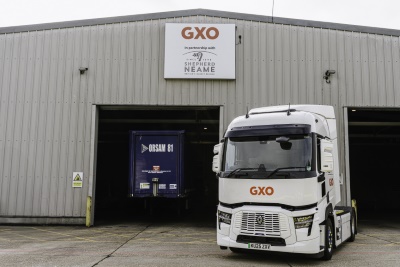 Recent vehicle rollouts for the project include two Renault Trucks E-Tech Ts operated by GXO for its customer, the independent brewer and pub operator Shepherd Neame.
Recent vehicle rollouts for the project include two Renault Trucks E-Tech Ts operated by GXO for its customer, the independent brewer and pub operator Shepherd Neame.
The new trucks, which operate between the company’s historic Faversham brewery and GXO’s nearby distribution centre, collect kegs, bottles and casks from the brewery and return with empty barrels for reuse, making ten trips daily and saving 1,148 litres of diesel every month, as well as cutting noise pollution.
The 42-tonne E-Tech Ts can travel up to 300km on a single charge, and are powered by six 90 kWh batteries and three electric motors. These are said to deliver up to 490kW of continuous power and 2,400Nm maximum torque, coupled to Renault Trucks’ Optidriver AT 2412 12 speed automated gearbox.
GXO, which has worked with Renault Trucks to source vehicles for a number of years, has purchased five fully electric vehicles in partnership with its customers, including Shepherd Neame.
Commenting on the release of the Electric Freightway report and TCO calculator, Leon Clarke, head of operations and delivery at Hitachi ZeroCarbon, said: “Crossing half a million electric miles is a clear signal that eHGVs are not just viable, but already delivering in the real world.
“What really matters now is giving managers the tools and evidence they need to make the transition with confidence. That’s why we’ve launched our new total cost of ownership calculator, so fleets can build the business case for decarbonisation and bring their long-term operational goals closer into view.
“We’re helping the industry move the EV debate onwards from theory to reality, and in turn strengthen the UK’s position as a leader in developing the future of commercial transport.”
Sam Clarke, head of eHGV at Gridserve, said: “Delivering the 10-bay shared charging depot at Nissan’s Sunderland plant is just the beginning of what a nationwide eHGV charging network can look like.
“As the number of miles undertaken by electric fleets continues to grow, our priority is ensuring the infrastructure keeps pace, with the first public charging sites now under construction and many more to follow.
“This report demonstrates how a national eHGV charging network is beginning to take shape, but it’s only made possible by the industry working through the challenges together, and always with the needs of fleet managers front of mind.”
The transport minister Keir Mather MP commented: “To create a cleaner planet and a stronger economy it’s essential the lorries and vans delivering goods across our country are supported to make the move to zero emissions.
“That’s why we’ve invested £200m to put more zero emission lorries onto our roads and build the charging network that keeps them moving. As this report shows the rollout is well underway and the future of freight is green.”
Commenting on the new Renault E-Tech T trucks in service for Shepherd Neame, the firm’s director of property development and sustainability, Martin Godden, said: “As a company we are committed to doing the right thing for our communities, our people and our environment, and recently introduced our People, Pubs and Planet strategy which includes reducing our net zero carbon for direct emissions by 2030.
“This investment is aimed at helping us to ensure our operations are as environmentally friendly as possible.”
Chris Hyde, managing director for food and beverage at GXO UK and Ireland, said: “It’s brilliant to be working with Shepherd Neame and Renault Trucks to expand our fleet of electric vehicles. These new trucks not only help us reduce the carbon footprint of our partnership, but they are a significant step in our commitment to finding more sustainable logistics solutions for our customers.
“We know the transition to alternative fuels presents challenges to the industry, but this is a great example of how we can implement EVs into an operation and instantly make it more eco-friendly.”
Carlos Rodrigues, managing director of Renault Trucks UK & Ireland, said: “We’re proud to see the first E-Tech Ts on the road with GXO and Shepherd Neame, supporting their shift to more sustainable transport. It’s great to see Britain’s oldest brewer embracing the future of zero emission trucks today. Their commitment to decarbonisation sends a clear signal, and we hope others across the industry will follow their lead.”









